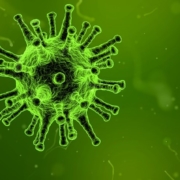Lifesaving Benefits … At A Price
I have spoken to very few people who have not taken an antibiotic at some time in their life. Prescribed for bacterial infections and sometimes parasites, antibiotics can be a lifesaver – but using antibiotics can be harmful.
The human gut is populated with trillions of microbes – estimated to be ten times the number of human cells that make up our bodies. These microbes support our immune system and affect our weight, our moods, our vulnerability to allergies and asthma, and our risk of autoimmune disease. They are symbiotic partners in creating wellness in our bodies.
What Do Antibiotics Do?
Anti-biotic means anti-life, and these drugs are effective at decimating our microbial population – both the good guys (beneficial bacteria) and the bad guys (pathogens). After a course of antibiotics it can take a long time for our microbes to grow back, and it often never returns to its former state. Even a single round can have permanent effects; hence, why I say using antibiotics can be harmful.
Our immune system is constantly addressing bacterial threats behind the scenes. When you “feel sick” it’s actually not an infectious microbe causing the symptoms. What you feel is your immune system going into high gear, and your symptoms (fever, congestion, fatigue) signal its activity. What your body most needs is for you to hear its call for help and change your activity – rest, hydrate, sleep, slow down.
Before Choosing Antibiotics
Since using antibiotics can be harmful, I suggest you consider options for supporting your immune system by:
- Keeping your Vitamin D around 50 ng/ml.
- Sleeping – seriously! It provides vital restoration.
- Take a daily probiotic or eat fermented foods (natural sauerkraut, kimchi, plain yogurt)
Microbes are always competing for space and resources in our gut, and a diverse population will help to prevent infections and imbalances. By wiping out the bacterial competition, antibiotics can give both fungal microbes and antibiotic resistant microbes a chance to become more virulent. This is a major cause of downstream dysfunction.
Alternative Options
It’s important to remember that antibiotics only generally work against bacteria, not viruses. If you note symptoms of your body fighting something, you can start with the changes I mentioned above (rest, hydrate, sleep and slow down). Don’t rush to reduce your fever if it is not particularly high as that is one of your body’s primary defense mechanisms for killing pathogens. Give it some time and consider these added steps:
- Take an extra 10,000 IU Vitamin D daily for a week.
- Take 30-40 mg Zinc Picolinate daily on full stomach.
- Stop consuming dairy foods if you have any congestion.
If you do find yourself needing a course of antibiotics, it’s critical to take a strong probiotic. The probiotic will help to hold ground for the good bacteria in your gut. Take it daily while taking the antibiotic and then for a month afterward. Take this probiotic separate from the medication so that it isn’t countered by the medication. This is best at night before going to bed if you are taking the drug twice a day.
You may be concerned about your immune function and reluctant to go to the doctor to avoid unnecessary exposure. Thankfully, there are simple steps that you can take to support your body in its daily mission.
Take a deep breath and evaluate your situation. You can make changes to support your immune system.










Leave a Reply
Want to join the discussion?Feel free to contribute!